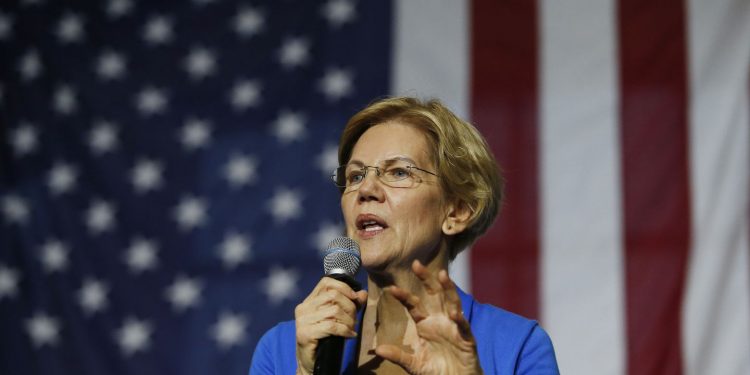By Canton Winer
I am not ready for Hillary.
Don’t get me wrong: I’ll almost definitely vote for Clinton, should she win the Democratic nomination. But, I’ll also almost definitely avoid voting for her in the Democratic Primary — and it is beginning to look like I am not alone.
A growing number of Democrats are not sold on Clinton, and understandably so. She has essentially been running for president for over a decade, yet her supporters have yet to articulate why anyone should support her, besides her supposed “inevitability.”
Inevitability is not enough. If you’ll remember, Clinton was also the “inevitable” Democratic nominee in 2008 — and we all know how that turned out.
In fact, a viable Democratic alternative to Clinton is already emerging. In recent months, Senator Elizabeth Warren’s name has been blazing upon headlines across the nation. Wielding her signature straight-talking style, Warren is reshaping the political landscape, putting forward her bold, fresh, progressive vision for our economy.
Warren’s strong advocacy for the middle class — she is one of a small collection of prominent politicians actually talking about how to combat income inequality — has earned her a small but growing following. While she has repeatedly denied that she is planning to run in 2016, Warren is facing increased calls from progressives around the nation to run.
Warren is gaining an impressive amount of clout. The Wall Street Journal attributed her influence to the surprisingly progressive tone of President Obama’s 2015 State of the Union Address last month. In fact, the Journal has even suggested that Warren’s focus on middle- and working-class interests has made Republican presidential contenders (including Rand Paul, Jeb Bush, Chris Christie and Scott Walker) “eager to test-drive a middle- and working-class economic agenda as they hit the campaign trail.”
If Warren’s ideas are so powerful that even leading Republicans are starting to emulate them, then why are establishment Democrats so scared?
In a nutshell, Warren is showing that Clinton is not nearly as “inevitable” as the Democratic Party establishment would have you believe. Talking heads around the country want you to forget that they were wrong in 2007 and hope that you will sleepily accept that they are correct today. Political commentators like to say that the parties have become more polarized, that the Democrats have shifted to the left and the Republicans to the right. This is patently false.
In reality, the Democrats and the Republicans have both shifted economically toward the right and toward Wall Street (though the Republicans generally cozy-up much more aggressively to moneyed interests).
As of late, both parties have failed to address the growing problems of average Americans. If Warren runs for president, she can reorient the national conversation so that both parties will work to address runaway income inequality.
Clinton supporters will try to argue that Warren has no chance. According to a February Des Moines Register/Bloomberg Politics Iowa Poll, 56 percent of likely Iowa caucus-goers name Clinton as their first choice. Only 16 percent name Warren as their first choice. (Keep in mind, Warren has repeatedly said she does not plan to run, and her numbers would likely swell if she declared.)
Still, Warren was the only Democratic candidate who made gains in the latest Des Moines Register poll. Furthermore, at this point in the 2008 nomination process, a Times Union/Siena College Poll placed Clinton’s support at 45 percent and Obama’s at 12 percent. The sands can shift quickly and decisively in national politics. Clinton supporters will also claim that a contested primary will damage the eventual Democratic candidate, no matter who emerges victorious.This is incredibly deceptive. Contested primaries can actually benefit the party by forcing the candidates to persuasively communicate what they believe in and why voters should care.
Currently, the only solid reason to vote for Clinton is because… well, who else is there?
A Warren presidential run would force Clinton to articulate her platform, which would actually benefit Clinton, and would likely encourage Clinton to shift away from Wall Street and other Big Money clubs and begin advocating for average Americans.
“Hillary the Inevitable” was a headline from 2007. Unless Clinton can prove her progressive mettle, this headline will be as wrong in 2016 as it was eight years ago. “Elizabeth Warren for President” may be the best headline Clinton supporters could hope for.
Canton Winer, FCRH ’15, is an American studies and sociology major from West Palm Beach, FL.





